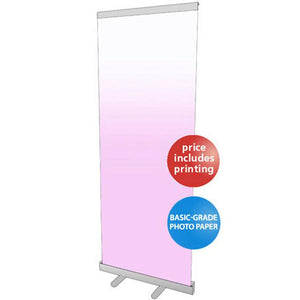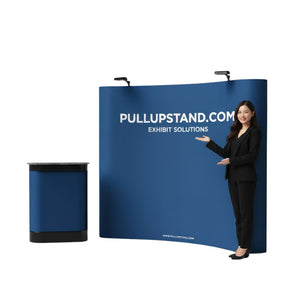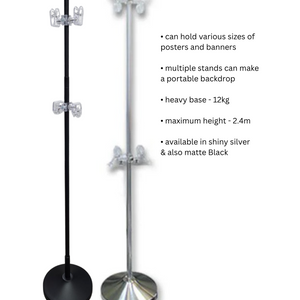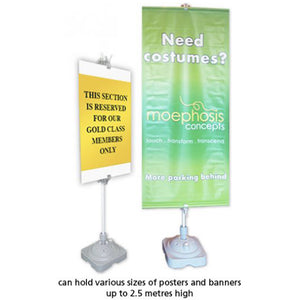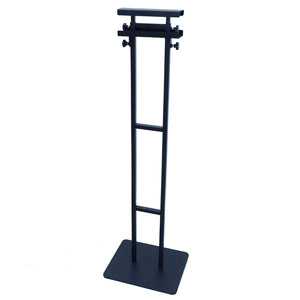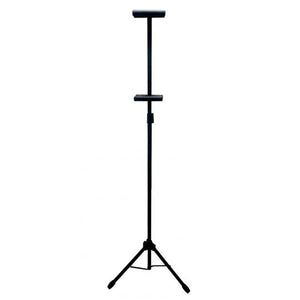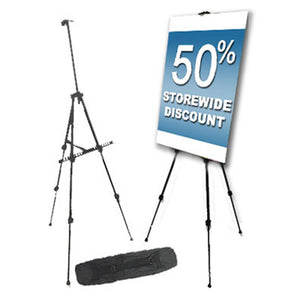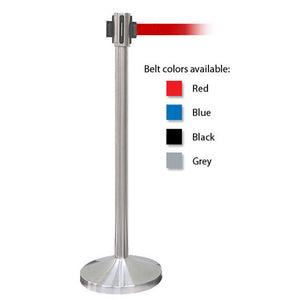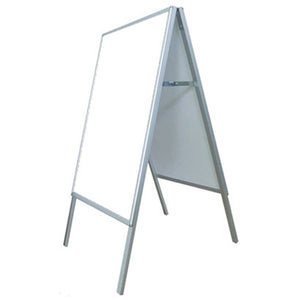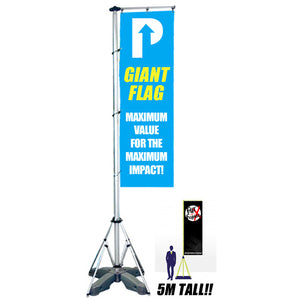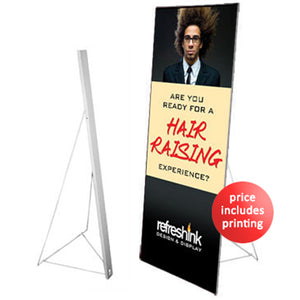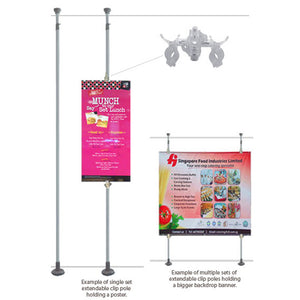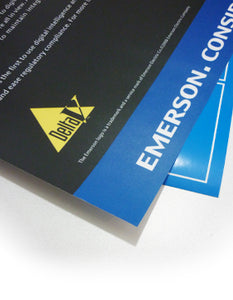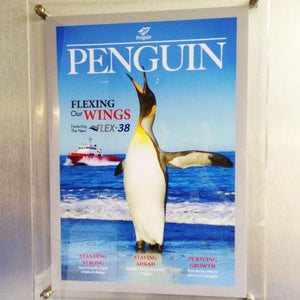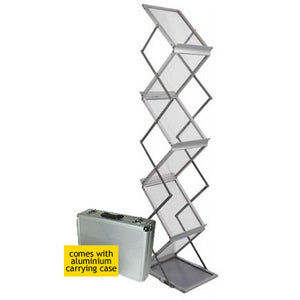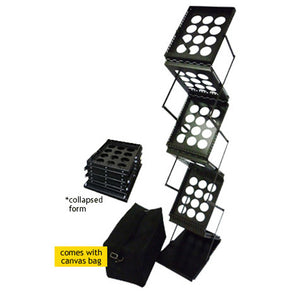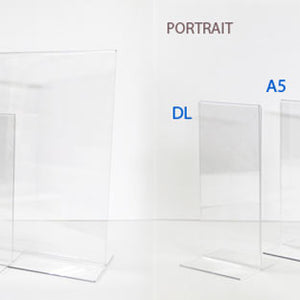Introduction to Singapore's Exhibition Industry for UK Organizations
Singapore stands out as Southeast Asia's premier exhibition hub, offering UK businesses unparalleled access to ASEAN markets. Singapore has cultivated a world-leading MICE (Meetings, Incentives, Conferences, and Exhibitions) industry, supported by state-of-the-art infrastructure, significant government backing, and a proven record of hosting high-profile international events. This ecosystem provides a strong foundation for UK entities wanting to showcase their offerings.
For UK entities, Singapore's benefits are numerous. It serves as a gateway to ASEAN markets with over 650 million people. The predominantly English-speaking business environment reduces communication barriers, while the strong legal framework provides security for commercial activities. Furthermore, Singapore's status as an innovation hub offers synergistic opportunities for UK organizations in technology, finance, and biomedical sciences.
However, success requires more than just showing up. UK exhibitors need a clear value proposition and differentiated offering to stand out in this competitive marketplace. Let's explore how to navigate this exciting opportunity effectively.
Step-by-Step Exhibition Planning Guide Singapore for UK Organizers
Planning a successful exhibition in Singapore requires methodical preparation. The timeline depends on your exhibition's scale and complexity:
- Small-scale exhibitions: 6-9 months lead time
- Medium-scale exhibitions: 12-18 months
- Large-scale international exhibitions: 18-24+ months
Follow these critical steps for exhibition success:
- Market research and objective setting: Define clear goals and understand your target audience in Singapore and ASEAN.
- Venue selection and booking: Secure your preferred venue 12-24+ months in advance, especially for prime locations and dates.
- Budget planning: Create comprehensive financial projections including venue rental, stand construction, freight, marketing, staffing, and technology.
- Contractor appointment: Appoint key contractors (Event Management Company, Freight Forwarder, Stand Builder) 9-15 months before the event.
- Regulatory compliance: Apply for necessary permits and understand legal requirements for UK entities operating in Singapore.
- Marketing strategy development: Launch marketing and promotion 6-12 months before the event, with sustained activity leading up to opening.
- Logistics planning: Establish freight and logistics deadlines 2-3 months in advance, depending on shipping method.
- Exhibition execution: Oversee stand construction, staff briefing, and day-to-day operations.
- Post-event evaluation: Measure success against predetermined metrics and gather feedback for future improvements.
Looking for practical display solutions for your exhibition? PullUpStand's portable exhibition displays offer lightweight, easily transportable options perfect for international exhibitors.
Singapore Exhibition Permit Requirements for UK Companies
Successfully organizing an exhibition in Singapore requires UK entities to navigate a comprehensive regulatory framework. Diligent adherence isn't just about compliance—it's fundamental to a smooth event that protects your reputation and investment.
Essential permits UK organizers must secure include:
- Industrial Trade Fair Permit or Exhibition Permit: Required from the Singapore Tourism Board (STB) for exhibitions exceeding specific size thresholds or anticipating significant public attendance. Apply early with detailed event concepts, floor plans, and confirmation of public liability insurance.
- Business Registration Requirements: The scale of your activities determines your registration needs. For one-off events, temporary arrangements might work, but for regular events, consider establishing a local subsidiary through the Accounting and Corporate Regulatory Authority (ACRA).
- Public Entertainment License: Required from the Police Licensing & Regulatory Department (PLRD) if your exhibition includes live performances, music, or entertainment.
- Advertising Licenses: Necessary for certain outdoor advertising or extensive promotional campaigns to ensure compliance with local standards.
An integrated approach to compliance often proves most efficient. Consider hiring an experienced local event manager or legal consultant to streamline applications, identify overlaps, and ensure no regulatory gaps remain.
For official permit information, visit the Singapore Tourism Board's Business Events page.
For more insights on navigating exhibition regulations, check out PullUpStand's guide to Singapore exhibition regulations.
Best MICE Venues in Singapore for UK Exhibitors
Selecting the right venue fundamentally shapes your exhibition's success. Singapore offers world-class exhibition centers with unique attributes that UK organizers should evaluate based on their specific requirements, target audience, and budget.
Here's a comparison of Singapore's leading exhibition venues:
1. Singapore EXPO & MAX Atria
- Location: Near Changi Airport with excellent connectivity via dedicated MRT station
- Exhibition Space: Over 100,000 sqm across ten halls, Singapore's largest MICE facility
- Key Features: Largest capacity, suitable for heavy machinery, extensive outdoor space
- Ideal For: Very large-scale exhibitions, trade fairs with heavy equipment
2. Marina Bay Sands Expo and Convention Centre
- Location: Iconic landmark in Marina Bay, integrated with luxury hotel and retail
- Exhibition Space: Over 120,000 sqm of flexible event space
- Key Features: Prestigious location, cutting-edge AV technology, strong sustainability focus
- Ideal For: High-profile corporate events, luxury exhibitions, events needing integrated accommodation
3. Suntec Singapore Convention & Exhibition Centre
- Location: Strategically located in CBD, within Suntec City complex
- Exhibition Space: 42,000 sqm of versatile space with configurable halls
- Key Features: Prime city-center location, advanced technology, flexible spaces
- Ideal For: Medium-sized exhibitions needing central location and retail proximity
4. Resorts World Sentosa
- Location: Sentosa Island, integrated resort with leisure focus
- Exhibition Space: Various venues with multiple configurations
- Key Features: Unique themed environments
- Ideal For: Events seeking leisure/entertainment integration
Need customized backdrop displays that make your exhibition stand out? Explore PullUpStand's premium backdrop collection for professional, eye-catching solutions.
Exhibition Costs and Budgeting for UK Companies in Singapore
A meticulously constructed budget is fundamental to your exhibition's financial health and overall success. UK entities planning Singapore events must identify all potential costs, estimate expenses realistically, and explore funding avenues.
Here's a comprehensive breakdown of anticipated expenses:
1. Venue Costs: Primary rental fees, utilities charges, cleaning services, and basic security as stipulated in rental agreements.
2. Stand Design and Construction: Costs vary dramatically between custom-designed stands and standardized shell schemes, including design fees, materials, labor, graphics, and furniture rental.
3. Freight and Logistics: International shipping from UK to Singapore, customs clearance, local transportation, material handling, and potential storage costs.
4. Marketing and Promotion: Digital campaigns, PR, advertising, social media promotion, signage, brochures, and promotional materials.
5. Staffing: Local temporary staff hiring (hosts, interpreters, registration staff) and UK-based staff travel expenses.
6. Technology: AV equipment, internet connectivity, registration systems, and lead retrieval solutions.
7. Travel and Accommodation: Expenses for core organizing team and potentially VIP guests or speakers.
8. Ancillary Services: Catering, photography, translation services, and event management agency fees.
9. Permits, Legal Fees, and Insurance: Costs for necessary permits, legal advice, and required insurance coverage.
10. Contingency Fund: Allocate 10-15% of the total budget for unforeseen expenses.
Currency exchange fluctuations between GBP and SGD can significantly impact your budget. Consider financial hedging strategies for large commitments in SGD.
Looking for cost-effective exhibition solutions? PullUpStand's budget-friendly display collection offers excellent value without compromising on quality.
Singapore Exhibition Logistics: UK to Singapore Shipping Guide
Moving exhibition materials from the UK to Singapore demands careful management of customs procedures. For temporary importation of goods not intended for sale, the ATA Carnet system is highly recommended.
Key logistics considerations include:
- ATA Carnet: This international customs document permits tax-free and duty-free temporary export and import of goods for up to one year. UK organizers can obtain it through designated UK issuing bodies and present it to Singapore Customs. This simplifies clearance and avoids import duties on goods that will be re-exported.
- Permanent Imports: For goods intended for sale or items not returning to the UK, standard import regulations apply, including potential liability for Singapore's Goods and Services Tax (currently 9%).
- Prohibited and Restricted Goods: Singapore maintains strict regulations on certain items like foodstuffs, agricultural products, telecommunication equipment, and specific publications. Ensure all exhibitors understand these restrictions.
- Freight Forwarder Selection: Appoint an experienced freight forwarder specializing in exhibition logistics with strong local knowledge in Singapore. They should manage the entire logistics chain from the UK to the exhibition venue.
For official information on ATA Carnets, visit the London Chamber of Commerce's ATA Carnet page.
Exhibition Stand Contractors Singapore for UK Companies
For UK organizers with limited on-ground presence, selecting reputable local partners significantly determines operational success. These partners bridge your knowledge gap, manage critical on-site tasks, and navigate Singapore's business environment nuances. A poorly chosen partner can quickly derail even meticulously crafted plans.
When selecting stand contractors in Singapore:
- Assess their portfolio: Look for contractors with strong design capabilities and high-quality previous builds.
- Check venue experience: Ensure they thoroughly understand the specific regulations and technical guidelines of your chosen venue.
- Verify sustainability practices: Preferably select contractors experienced in sustainable stand construction practices, aligning with Singapore's Green Plan 2030.
- Request detailed proposals: Develop clear RFPs outlining scope, deliverables, timelines, and evaluation criteria. Obtain multiple quotations for comparison.
- Conduct reference checks: Thoroughly verify previous client experiences.
- Negotiate robust contracts: Clearly define responsibilities, payment terms, service level agreements, and dispute resolution mechanisms.
For UK entities planning multiple Singapore events, building long-term relationships with reliable suppliers offers significant advantages beyond competitive pricing. Established relationships foster trust, mutual understanding, and deeper appreciation of your objectives and standards.
Need quick-setup exhibition stands? Check out PullUpStand's pop-up counter displays for professional presentation solutions that assemble in minutes.
Marketing Strategies for UK Exhibitors in Singapore
A successful exhibition requires targeted, culturally attuned marketing to attract desired audiences from Singapore, ASEAN, and international markets.
Effective strategies include:
1. Define Your Audience: Clearly identify specific profiles of attendees and exhibitors to inform channel selection and messaging.
2. Digital Marketing: Leverage:
- SEO and SEM to ensure event content is discoverable
- Social media marketing (LinkedIn for B2B, Facebook/Instagram for broader reach)
- Targeted email campaigns to curated prospect lists
- Content marketing through valuable blog posts, articles, and webinars
3. Public Relations: Engage with Singaporean and regional trade media, industry publications, and business journalists. Consider press conferences and media partnerships.
4. Direct Outreach: Personally invite key industry leaders, potential buyers, government officials, and influencers.
5. Strategic Partnerships: Collaborate with local industry associations, chambers of commerce, government agencies, and complementary event organizers to expand reach.
6. Cultural Adaptation: While English is Singapore's primary business language, ensure messaging remains culturally sensitive for the diverse regional audience.
Remember that marketing should be "ASEAN-aware" since many attendees and opportunities originate from neighboring countries. Strategies focusing solely on Singapore's domestic market risk missing substantial potential audience.
For more exhibition marketing insights, read PullUpStand's guide to effective exhibition marketing strategies.
ATA Carnet and Customs Requirements for Singapore Exhibitions
The ATA Carnet system is vital for UK exhibitors bringing materials temporarily to Singapore. This international customs document allows tax-free and duty-free temporary import of goods for up to one year. Obtain your ATA Carnet through designated UK issuing bodies like the London Chamber of Commerce and present it to Singapore Customs upon arrival and departure.
Important customs considerations:
- Customs Declaration Forms: Complete accurately to prevent delays or penalties.
- Goods Classification: Clearly distinguish between temporary imports (using ATA Carnet) and permanent imports (subject to standard import regulations and GST).
- Prohibited Items: Familiarize yourself with Singapore's prohibited and restricted goods list. Certain foodstuffs, agricultural products, telecommunication equipment, and publications may require special permits or be entirely prohibited.
- Documentation Timeline: Prepare customs documentation 2-3 months before the exhibition, depending on shipping method and origin.
- Professional Support: Engage an experienced freight forwarder or customs broker with Singapore expertise who can manage the entire customs clearance process.
For comprehensive customs information, visit the Singapore Customs official website.
Exhibition Funding Options for UK Businesses in Singapore
UK entities can explore several avenues for financial support when exhibiting in Singapore:
1. UK Government Support: The UK's Department for Business and Trade (DBT) offers various support schemes and grants for UK businesses exhibiting at overseas trade shows. Check the latest offerings relevant to Singapore participation. Some UK-based industry associations or regional chambers of commerce may also provide grants for members participating in key overseas exhibitions.
2. Singaporean Government Incentives: The Singapore Tourism Board (STB) actively promotes Singapore as a MICE destination through incentive schemes. The Business Events in Singapore (BEiS) scheme can provide funding for qualifying events that align with Singapore's strategic objectives, such as attracting significant international visitors or profiling key industry sectors.
3. Sponsorships: Corporate sponsorships can be a significant revenue stream, particularly for larger exhibitions. Develop attractive sponsorship packages with clear benefits like branding opportunities, speaking slots, or delegate access.
4. Exhibitor Fees: If organizing a pavilion or collective UK presence, fees charged to participating UK companies will form a core revenue part.
Early pursuit of STB incentives or UK government grants can fundamentally alter your exhibition's financial viability and potential scale. Success often depends on demonstrating strong economic benefits, alignment with government priorities, or significant contributions to industry development.
For information on UK government export support, visit the UK Export Finance website.
Singapore Business Exhibition Registration Process
The registration process for UK businesses participating in Singapore exhibitions involves several critical steps:
- Initial Application: For exhibitions exceeding specific size thresholds, apply for an Industrial Trade Fair Permit or Exhibition Permit from the Singapore Tourism Board (STB). Submit detailed event concepts, floor plans, and confirmation of public liability insurance.
- Business Structure Decision: Determine whether to operate under temporary arrangements for one-off events or establish a local subsidiary through the Accounting and Corporate Regulatory Authority (ACRA) for regular events. Government entities might leverage existing diplomatic structures, while corporations typically conduct cost-benefit analyses.
- Additional Permits: Secure a Public Entertainment License from the Police Licensing & Regulatory Department if including performances or entertainment. Obtain Advertising Licenses for extensive promotional campaigns.
- Data Protection Compliance: Ensure all registration processes comply with Singapore's Personal Data Protection Act (PDPA), especially for online registration, marketing communications, and lead retrieval systems.
- Insurance Requirements: Obtain mandatory Public Liability Insurance with specified minimum coverage as required by venues and authorities. Consider additional coverage like event cancellation insurance, property damage insurance, and comprehensive liability coverage.
For official business registration information, visit the Accounting and Corporate Regulatory Authority (ACRA) website.
Maximizing ROI at Singapore Trade Shows for UK Exhibitors
To maximize return on investment, UK exhibitors must strategically approach their Singapore participation:
- Set Clear Objectives: Define specific, measurable goals beyond mere presence—lead generation targets, partnership opportunities, or brand awareness metrics.
- Pre-Event Marketing: Develop robust pre-event marketing with a clear value proposition and differentiated offering to capture attention in this competitive market.
- Strategic Venue Selection: Choose venues based on target audience, geographical location, accessibility (proximity to airport, CBD, public transport, hotels), technical capabilities, and overall brand image—not just cost.
- Local Partnerships: Build relationships with reliable Singaporean suppliers who understand your objectives and can provide preferential service, greater flexibility, and proactive solutions.
- Regional Approach: Leverage Singapore as a gateway to ASEAN markets with over 650 million people, not just as a standalone opportunity.
- Comprehensive Evaluation: Conduct thorough post-event evaluation using predetermined metrics including quantitative measures (qualified leads, sales figures, ROI, media mentions) and qualitative feedback (attendee satisfaction, exhibitor impressions, partnership formation).
Need attention-grabbing display materials that maximize your exhibition impact? PullUpStand's fabric display collection offers stunning visual solutions with excellent portability.
For branded promotional items to enhance your presence, check out PullUpStand's branded promotional products that help increase booth engagement.
Singapore MICE Industry Regulations for UK Exhibitors
Navigating Singapore's regulatory framework is essential for UK exhibitors. Careful adherence protects your reputation and investment while contributing to Singapore's standing as a secure, reliable event destination.
Key regulations include:
- Intellectual Property Protection: Singapore has robust IP laws and strong enforcement. UK entities should consider registering relevant trademarks, patents, or industrial designs through the Intellectual Property Office of Singapore (IPOS) before exhibiting. Implement careful disclosure practices and non-disclosure agreements where appropriate.
- Data Protection: The Personal Data Protection Act (PDPA) governs how organizations handle personal data. Comply with obligations regarding consent, notification, access, protection, and retention when collecting attendee information.
- Insurance Requirements: Hold mandatory Public Liability Insurance with specified minimum coverage. Consider additional protection like event cancellation insurance, property damage coverage, and comprehensive liability for exhibitors.
- Workplace Safety: Adhere to Singapore's Workplace Safety and Health regulations during stand construction and exhibition operations.
- Food and Beverage Regulations: If offering F&B samples, comply with Singapore Food Agency requirements.
While demanding, this regulatory framework ultimately contributes to Singapore's reputation as a secure exhibition destination, attracting high-value exhibitors and attendees who prioritize well-regulated environments.
Exhibition Calendar and Strategic Timing for UK Exhibitors
Timing your Singapore exhibition strategically can significantly influence its success in terms of attendance, media attention, and overall impact.
Consider these factors when selecting your exhibition dates:
1. Event Calendar Analysis: Review Singapore's dense calendar of international and local exhibitions to avoid clashes with similar-themed events that could dilute your target audience. Identify potential synergies with complementary events.
2. Peak vs. Off-Peak Seasons: Peak seasons offer higher concentrations of international business travelers but with higher costs and tighter availability. Off-peak seasons might provide cost advantages but require more intensive marketing.
3. Industry-Specific Cycles: Align with industry-specific buying cycles or preferred event timings. Technology events often cluster in certain quarters, while fashion events coincide with seasonal buying windows.
4. Local Holidays: Factor in Singaporean public holidays (Chinese New Year, Hari Raya Puasa, Deepavali, National Day), which can affect venue availability, labor costs, attendee numbers, and logistics.
5. "Shoulder Seasons": Consider periods immediately before or after peak MICE seasons, which might offer better availability, negotiable rates, and still-active business atmosphere.
6. Planning Horizons: Allow sufficient lead time based on your exhibition scale:
- Small-scale exhibitions: 6-9 months
- Medium-scale exhibitions: 12-18 months
- Large-scale international exhibitions: 18-24+ months or longer
For UK entities planning recurring exhibitions, develop a multi-year strategic calendar to secure desirable dates in advance and build sustained market presence.
For more exhibition planning tips, read PullUpStand's exhibition planning timeline guide.
Conclusion: Why UK Businesses Should Exhibit in Singapore
Singapore's established position as Asia's premier MICE hub offers substantial opportunities for UK entities seeking ASEAN market expansion. Its world-class infrastructure, pro-business environment, strategic location, and strong government support create fertile ground for impactful exhibitions.
Success requires more than presence—it demands strategic planning and meticulous execution focused on:
- Thorough planning and due diligence
- Navigating regulatory compliance
- Robust financial management
- Strategic venue selection and timing
- Strong local partnerships
- Effective, regionally-aware marketing
Most importantly, have a clear strategic vision whether to penetrate new markets, generate qualified leads, build brand awareness, launch products, or facilitate policy dialogue.
UK entities should leverage Singapore not just as a standalone market but as a strategic springboard into the wider ASEAN economic community with its tremendous growth potential.
Ready to make your exhibition stand out? Contact PullUpStand for professional, portable exhibition display solutions that travel easily from the UK to Singapore and help you maximize your exhibition investment.
For a complete range of exhibition solutions, explore PullUpStand's full catalog of exhibition products designed to help UK businesses shine at international exhibitions.
Remember that regulations, costs, and market dynamics change regularly. Always consult official sources like the Singapore Tourism Board and venue authorities for the most current information as you begin planning your Singapore exhibition journey.





















































